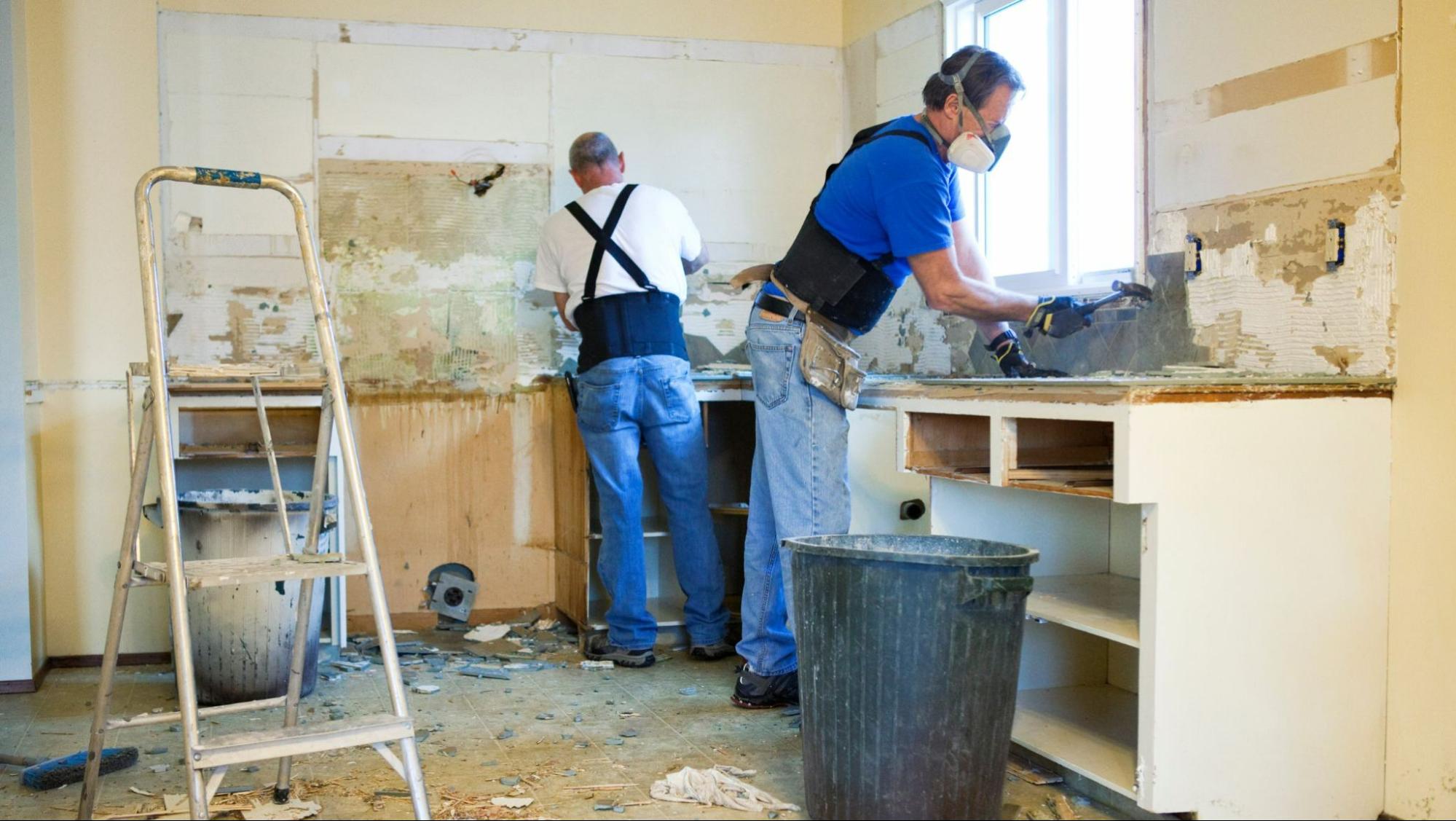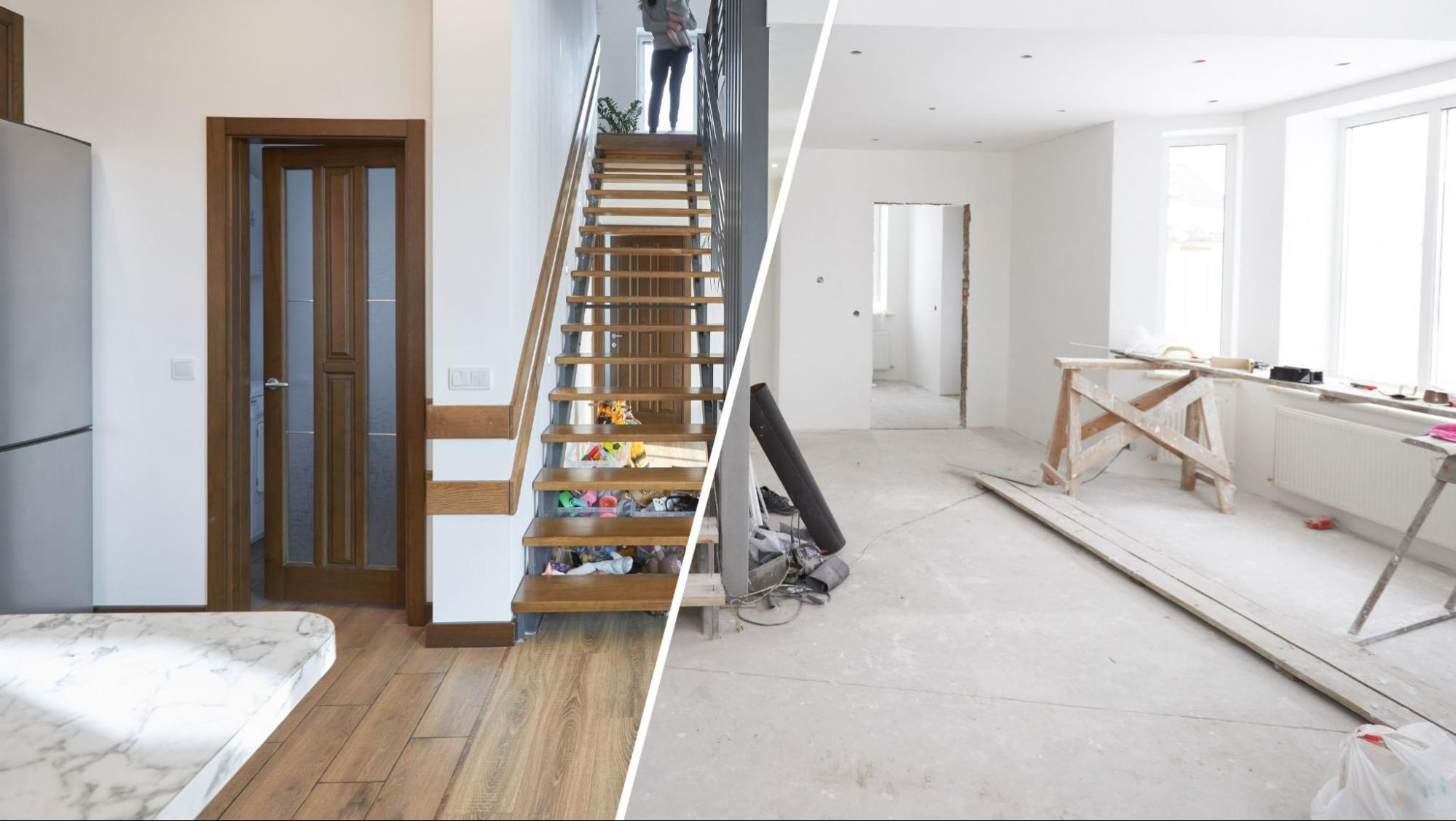Table of Contents
Toggle
One of the most exciting parts of owning a home is customizing it to fit your needs. Whether you’re replacing your kitchen cabinets, expanding your bathroom, or upgrading to energy-efficient windows, a successful renovation can help you create a living space you love.
However, even more minor projects require plenty of preparation to ensure the renovation is complete without issues.
This article explores 6 things to consider before planning your home renovation.
1. The Purpose of the Renovation
First, clearly define why you are planning a renovation. Are you looking to fix a problem, add upgrades, or maximize your home’s resale value?
Knowing your purpose helps you determine critical factors like the project’s scope, budget, and materials. For example, if your goal is to maximize property value, a kitchen or bathroom renovation could increase home values the most.
On the other hand, upgrades for personal enjoyment can be made anywhere in the home, but you’ll need to keep your own style preferences in mind.
2. Budget and Financing
Next, establish your budget for the renovation. Figure out how much you can spend and add a buffer for unexpected expenses just in case you go over budget. This will help you avoid going over your means and shop for the right materials and labor.
Part of establishing your budget is knowing how you’ll pay for the renovations. You’ll need to consider how much you currently have saved for the renovation and determine whether additional home renovation financing is needed to fill any gaps.
You can consider financing options like:
- Home equity loans: These use home equity as collateral for your loan.
- Home equity of lines of credit: HELOCs use home equity as collateral to offer you a flexible loan.
- Personal loans: These unsecured installment loans let you borrow with a credit check and repay over time.
- Life insurance: One of the benefits of life insurance is you can get low-interest loans without a repayment date or credit check through the policy’s cash value.
You could combine this with savings if needed to keep financing costs lower.
Consider financing options like home equity lines of credit, which utilize your home’s equity as collateral for a flexible loan. When evaluating potential financing, it’s important to understand the HELOC pros and cons. The flexibility of a HELOC can be incredibly beneficial during a renovation project, but it’s also wise to weigh any potential drawbacks.
3. Return on Investment (ROI)
If the purpose of your renovation is to maximize your home’s resale value, then return on Investment (ROI) is a crucial number to consider. ROI compares how much your home increases in value to how much you spend, including interest on the loan you use.
Kitchen and bathroom remodels tend to offer higher ROIs when costs are managed well, which suits them for a resale situation. However, neighborhoods may differ in what projects offer the most ROI1.

For example, a high-end renovation in a middle-income neighborhood may not work since the target buyers may not want to pay for the upgrades. Another example would be a garage, which may offer a better ROI in a place that experiences more inclement weather.
ROI matters less if the renovation is primarily for your personal preferences, but it’s still worth considering if you ever decide to sell your home. It can also help you potentially build more home equity, increasing your assets.
4. Whether to DIY or Hire a Professional
Doing the project yourself can save you a lot of money, but you should understand which types of renovations would require a professional before you grab your toolbox.
Some aspects, such as electrical or plumbing, require permits and professionals. You cannot do them yourself.
Therefore, DIY may work best if your project is simpler and you consider yourself handier around repairs and maintenance. Some examples include:
- Installing new cabinets
- Replacing your front door
- Repainting your walls
- Updating old flooring
Hiring licensed, insured, professional contractors may cost a bit more, but it saves time and ensures the job is done correctly.
Using a professional may work better for larger, more complex projects you don’t feel confident performing yourself. Still, hiring professionals for simpler projects will save you time and make things easier.
You’ll want to research contractors thoroughly, so ask friends and family for references, and compare quotes to find reputable professionals.
5. How The Renovation Impacts Your Daily Life
Renovations can disrupt daily activities to varying degrees, depending on the room. You’ll need to plan alternative arrangements to live around the renovations while in process.
For example, if you are having your bathroom renovated, everyone in the household will need to use other bathrooms during the project, which will not be an insignificant [MC1] interruption.
On the other hand, a kitchen renovation can interrupt your life a lot more. There may be more noise and dust in your living area, and you’ll need to cook in a different space or consider dining out more during the process.
If you hire contractors, it’s best to communicate with them frequently so you’re in the loop and to help the project run smoothly.
6. Regulatory Requirements
Following building codes and getting the correct permits are necessary for legally renovating your home. Otherwise, you could face fines, penalties, and other issues.
For example, you may need to get specific permits for additions to your home, such as new rooms or detached garages. Without these, you’ll face problems in the future.

Hiring local reputable contractors can make this easier since they keep up with and follow building codes when completing projects. You can also contact your local code enforcement office if you have any questions about permits or which projects might require one.
Consider These Before Renovating Your Home
You’re probably excited to jump into renovating, but planning ahead is crucial for success.
First, understand the renovation’s purpose and local building codes. Then, estimate your budget and financing while evaluating ROI and considering the impact on daily life. Consider hiring professionals for more major projects, especially those requiring permits.
Arranging these things ahead of time will help you create an enjoyable living space with minimal issues.
Sources
1 Bankrate, “Which home improvements add the most value?”
[MC1]change to insignificant















